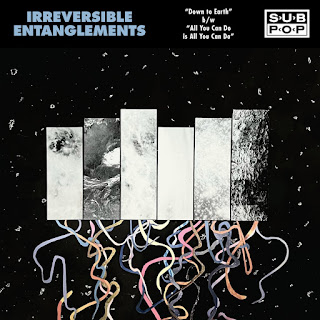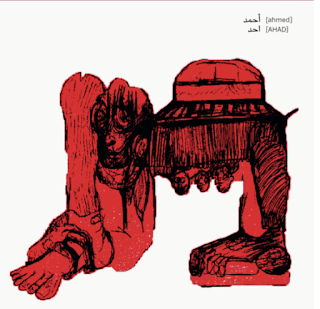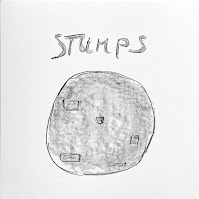In the comments to our Top Ten lists, our reader Jeff said that two singles were also among his favorites last year. Usually we don’t review 45s, our focus is more on complete albums, but even in jazz singles were hip in the past. Although LPs have increased in popularity at least since the 1950s, singles were the most popular and lucrative way to release music, reaching their commercial peak in 1974 when a reported 200 million were sold (according to pro-ject.com). However, even in jazz they were a popular medium, just think of Stan Getz & Astrid Gilberto’s “Girl from Ipanema (1964) or Dave Brubeck’s “Take Five“ (1961). Since the mid 1970s, the global demand has gone down. The advent of the CD in the early 1980s was the main factor that caused sales of the 45 to drop. Finally, as more and more people had access to the Internet, this seemed to be the ultimate death for the good old 7 inch.
Yet, wherever there’s passion, there’s sure to be a revival and lovers of the format held on in creative ways. Sub Pop, for example, launched a “Singles Club”, where they mailed 7 inches to members, especially introducing the world to grunge. Against all odds, their sales have been growing steadily. After releasing stuff by many of the usual suspects like Sonic Youth, Fugazi, and the Jon Spencer Blues Explosion, their program has become more diverse. Acts like Moor Mother and Keiji Haino are part of their program today. And what is more, there are other labels that keep on releasing 45s as well (at least now and then).
Irreversible Entanglements - Down to Earth (Sub Pop Records, 2022)
One of the latest Sup Pop releases is Irreversible Entanglements’s Down To Earth. The track is a spherical explosion, reminiscent of Sun Ra at the beginning, since it’s aided by the strong reverb and interlocking horns and lyrics that could allude to a spaceship landing back on earth. However, Camae Ayewa (aka Moor Mother) (voice, synth) does not rage against social injustice as she usually does on former albums. She simply repeats the words “Down to Earth“ over and over again. Against this monotonous recitation the band, which has clearly taken command here, hurls excellent free jazz in the listener’s face. “All you Can Do Is All you Can Do“ then gives us the band in the way we’ve learned to love them. Against grumbling, menacing electronic loops which remind me of helicopters, Ayewa recites somber verses like “All you can do is all you can do / Nobody knows trouble like I do“. Between her rant, Aquiles Navarro’s trumpet soars to dizzying heights. “What else to be done?“ Ayewa finally asks. She doesn’t seem to have an answer. There’s a lot of resignation here, after all. But the music grooves in an unruly, somber way.
Down To Earth is available on vinyl and as a download.
[ahmed] - [ahmed] (A Cheeseboard Production, 2022)
[ahmed], the outfit that recorded our album of the year 2021, has also released a 45. Once again, the band unites free jazz and Arabic music released by the bassist and oud player Ahmed Abdul-Malik. Along with Seymour Wright (alto sax), Joel Grip (bass) and Antonin Gerbal (drums), Pat Thomas (piano) trims Abdul-Malik’s compositions to their rhythmic and harmonic bones, stripping away everything unnecessary at first. After the band has agreed on a groove - which can be a very weird one - they happily dash off on it into the sunset. The two songs here are called “Ahad“ and “Wahid“, both words meaning “one“ in English. However, there is a difference between the two words in Arabic. The name al-Ahad for Allah is more exclusive in its meaning than the name al-Wahid, referring specifically to Allah’s essence, communicating that Allah is absolutely singular and utterly unique in his attributes. As to the music, both of these “ones“ are excerpts from two live sets. They are new versions or arrangements of Abdul-Malik’s composition “El Haris (Anxious)“.
“Ahad“ puts the Arabic part of this project’s music in foreground. There’s a very nice crescendo in the middle of the song, carried by swelling bass and drums, before the piano takes over. From this moment on the band sounds as if Cecil Taylor has incorporated influences of a long stay in the Middle East into his music. While “Ahad“ follows in the vein of previous albums, “Wahid“ is the more spectacular of the two tracks. It relies on a monotonous, atonal piano chord in the high registers that hammers its way through the piece. In counterpoint, the low registers of the piano and bass move around this chord, which make it shine like a diamond.
Especially in “Wahid“ it seems as if you were constantly getting slapped in the face and your head is a buzzing top that makes you stagger blindly through the world. You are fully into the music and possibly want to jump up and down like a madman, but you don’t want the thing to stop. It’s a constant change, whenever you think you know what’s going on, the music turns off in another direction. “Even though you might hear the repetition, it’s not like systems music where everyone is doing the same thing,“ Thomas said in an interview. Exceptional music, everything Pat Thomas touches musically seems to turn to gold at the moment.
You can listen to [ahmed] here:


















0 comments:
Post a Comment